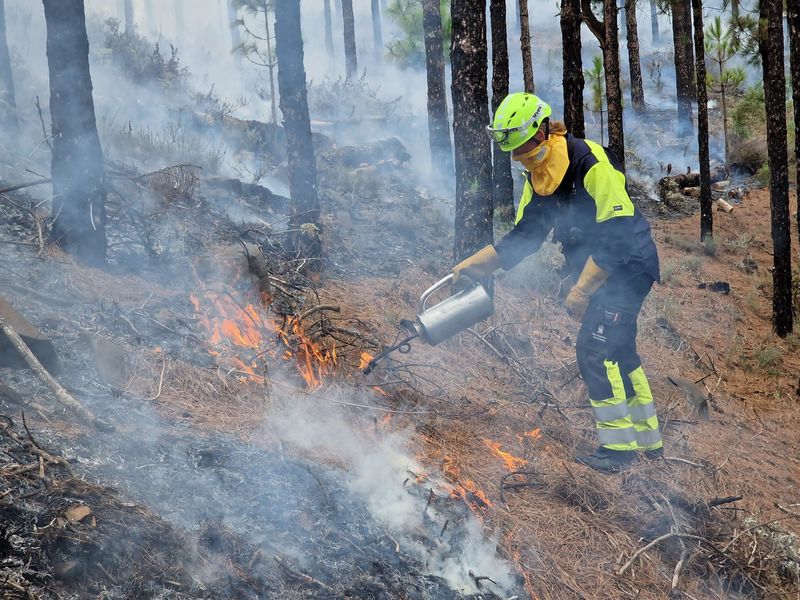On January 15, 2023, the Pau Costa Foundation team that will participate in the second stage of the EGIF (Wildfire Management Team) program between CONAF (National Forestry Corporation, Chile) and the Foundation, left Madrid for Santiago de Chile. During the next three months, Juan Caamaño, coordinator of the EGIF program, Jorge García, instructor, Jonathan Troncho, logistics, Jordi Pagés, instructor and Elena Luque, human factor expert, together with experts from Bombers de la Generalitat de Catalunya, INFOCA (Andalusia), INFOCAM (Castilla-La Mancha), ANEPC (Portugal), UDIF (Murcia), Lefthand Fire Protection District (Colorado, USA), VAERSA (Valencia), FAST (Ministry of Ecological Transition and Demographic Challenge) and ETAC (Córdoba, Argentina), and CONAF, will exchange methodologies and knowledge in order to anticipate and improve the response to a wildfire emergency.
During the first stage of the EGIF program in 2022, the focus was on the organization and management of an emergency, analysis for operational decision-making, the use of technical fire and the development of operational plans for emergencies.From there, a series of needs were identified that will be addressed in this second phase. Among them, the improvement of predictive and analytical capabilities for decision making; advice on the design of operations based on available resources; improvement of coordination and organization of large wildfire emergencies; advice for the design of an Air Operations Coordination program and implementation of a human factor program.
The EGIF program is a unique technical assistance program specially designed to be a space for the exchange of knowledge, experiences and work methodologies to improve capabilities and adapt what has been learned to each environment. Essentially, it aims, on the ground, to transform an emergency response scenario, in the current fire campaign in Chile, into a learning scenario. This implies creating an environment of trust among the different members of the EGIF team, with different backgrounds, experiences and origins, so that together, a shared and expanded knowledge is generated from the contributions of each one. In this sense, the program incorporates the human factor as an essential working element.






